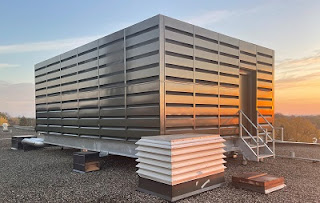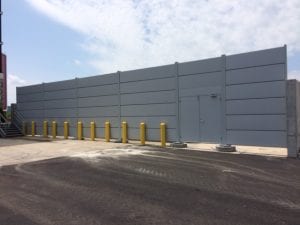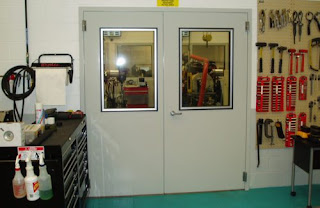How the best soundproofing material can work for you
The best soundproofing material will completely block sound vibrations from within and outside of your recording studio; hence it should be made of a completely solid substance. The smallest tear in soundproofing material will make it useless, as sound can find its way through the smallest openings.
For this reason, fiberglass soundproofing material is the preferred material for many professional soundproofing installers that adhere to the STC rating chart. However in some professional recording studios, the professionals will use lead barriers to block the sound waves. The usage of lead barriers, nonetheless, needs knowledge not only on how sound waves travel, but also on how both lead barriers and fiberglass work to block them. This knowledge is what differentiates the professional soundproofing installer from a handyman, and is the reason you should go for a professional if you want your recording studio to be as impervious as possible to sound.
The difference between soundproof and sound absorbent material before you start your search for what you will require to complete your recording studio, you have to clarify for yourself the difference between soundproofing and sound absorbent materials. They don’t work in the same way as a noise barrier, and neither can be substituted for the other.
On the contrary, soundproofing material will prevent exterior sound waves from entering your recording studio. The soundproofing material will be applied on the walls, floor and ceilings of the studio, and also around its doors and windows.
How to use acoustic ceiling baffles
You can use acoustic ceiling baffles in your recording studio by making the studio as a room within a room, and adding the soundproofing to the space between the actual and the new walls. This is the simplest technique for a DIY-er to create a soundproof room.




Comments
Post a Comment